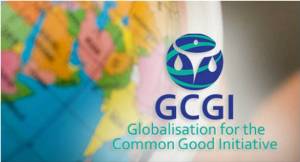
Photo:bing.com
‘A new economics: Teaching of discipline needs to rely less on abstract models’-Financial Times editorial (November 12, 2013)
This leader is welcome news for those of us who have been pointing out the inadequacy of the economics syllabus at universities for years. To appreciate the significance of this editorial in aiding a better understanding of the economic crisis, I would like to quote a couple of important and relevant passages:
‘The failure of the dismal science to predict and explain the worst financial crash since the Depression has understandably prompted some reflection among the more thoughtful ranks of academics.
‘The case for new thinking is strong. Economics teaching – even to first-year undergraduates – had before the crisis become too wedded to scientific pretension. Excessive faith was invested in abstract mathematical models, while insufficient effort was made to link these to real-life experience. The absence of topicality not only robbed the subject of interest and excitement, it risked not equipping the student with the skills to grapple with everyday problems.
‘The recital of laws and ritual genuflection towards mathematical models may lend the subject a certain intellectual respectability, but much of this is spurious.
‘There are stirrings in the academic gloaming. The failure to predict the crash not only unsettled Queen Elizabeth II – who famously gathered some economists together to ask them how they had missed it. There has been some soul-searching among academics too.
‘There is a recognition that disciplines such as psychology, history and finance need to be more firmly embedded in economics teaching. The route to publication in top journals should involve empirical research, not just the firing up of an Excel spreadsheet.
‘But, as the crisis showed, we should be humble about the limits of our knowledge. Substituting a little humility for pretension would be a welcome step.’
And now a note from Kamran Mofid to the Editor of Financial Times:
Sir, I have read your editorial ‘A new economics’ with much interest. You conclude your piece by asking the economics profession to substitute a little humility for pretension as the first step to a new economics: I wholeheartedly agree.
However, may I respectfully ask you to let me know if you had ever written an editorial in similar vein before the crash of September 2008? Had you ever encouraged your readers to think about economic pluralism? Have you ever encouraged a dialogue of disciplines, ideas and visions in the study and practice of economics: a dialogue between economics, ethics, philosophy, spirituality, and the common good? Have you ever encouraged the wealth-creators that read your paper to reflect on ‘Why’ and ‘How’ wealth is produced and, more importantly, when wealth is created, ‘What’ it is going to be used for?
Knowing how busy you are, may I share with you a short passage on the subject from a book I wrote in 2005, well before the crash of September 2008:
‘From 1980 onwards, for the next twenty years, I taught economics in universities, enthusiastically demonstrating how economic theories provided answers to problems of all sorts. I got quite carried away by the beauty, the sophisticated elegance, of complicated mathematical models and theories. But gradually I started to have an empty feeling.
‘I began to ask fundamental questions of myself. Why did I never talk to my students about compassion, dignity, comradeship, solidarity, happiness, spirituality – about the meaning of life? We never debated the biggest questions. Who are we? Where have we come from? Where are we going to?
‘I told them to create wealth, but I did not tell them for what reason. I told them about scarcity and competition, but not about abundance and co-operation. I told them about free trade, but not about fair trade; about GNP – Gross National Product – but not about GNH – Gross National Happiness. I told them about profit maximisation and cost minimisation, about the highest returns to the shareholders, but not about social consciousness, accountability to the community, sustainability and respect for creation and the creator. I did not tell them that, without humanity, economics is a house of cards built on shifting sands.
‘These conflicts caused me much frustration and alienation, leading to heartache and despair. I needed to rediscover myself and real-life economics. After a proud twenty-year or so academic career, I became a student all over again. I would study theology, philosophy and ethics, disciplines nobody had taught me when I was a student of economics and I did not teach my own students when I became a teacher of economics.
‘It was at this difficult time that I came to understand that I needed to bring spirituality, compassion, ethics and morality back into economics itself, to make this dismal science once again relevant to and concerned with the common good.’
I then went on to found the Globalisation for the Common Good Initiative to work towards this.
Globalisation for the Common Good Initiative (GCGI): A Brief Introduction and Summary

Guided by the principles of hard work, commitment, volunteerism and service; with a great passion for dialogue of cultures, civilisations, religions, ideas and visions, at an international conference in Oxford in 2002 the Globalisation for the Common Good Initiative (GCGI) and the GCGI Annual International Conference Series were founded.
We recognise that our socio-economic problems are closely linked to our spiritual problems and vice versa. Moreover, socio-economic justice, peace and harmony will come about only when the essential connection between the spiritual and practical aspects of life is valued. Necessary for this journey is to discover, promote and live for the common good. The principle of the common good reminds us that we are all really responsible for each other – we are our brothers' and sisters' keepers – and must work for social conditions which ensure that every person and every group in society is able to meet their needs and realize their potential. It follows that every group in society must take into account the rights and aspirations of other groups, and the well-being of the whole human family.
One of the greatest challenges of our time is to apply the ideas of the global common good to practical problems and forge common solutions. Translating the contentions of philosophers, spiritual and religious scholars and leaders into agreement between policymakers and nations is the task of statesmen and citizens, a challenge to which Globalisation for the Common Good Initiative (GCGI) adheres. The purpose is not simply talking about the common good, or simply to have a dialogue, but the purpose is to take action, to make the common good and dialogue work for all of us, benefiting us all.
What the GCGI seeks to offer - through its scholarly and research programme, as well as its outreach and dialogue projects - is a vision that positions the quest for economic and social justice, peace and ecological sustainability within the framework of a spiritual consciousness and a practice of open-heartedness, generosity and caring for others. All are thus encouraged by this vision and consciousness to serve the common good.
The GCGI has from the very beginning invited us to move beyond the struggle and confusion of a preoccupied economic and materialistic life to a meaningful and purposeful life of hope and joy, gratitude, compassion, and service for the good of all.
Perhaps our greatest accomplishment has been our ability to bring Globalisation for the Common Good into the common vocabulary and awareness of a greater population along with initiating the necessary discussion as to its meaning and potential in our personal and collective lives.
In short, at Globalisation for the Common Good Initiative we are grateful to be contributing to that vision of a better world, given the goals and objectives that we have been championing since 2002. For that we are most grateful to all our friends and supporters that have made this possible.
Finally, I extend a very warm invitation to you to consider participating at the GCGI 12th Annual International Conference, where you can expand further on your editorial of November 12, and sharing your wisdom and insight on what ‘A new economics’ could look like. Please see below for conference details.
Once again, I thank you for your brilliant input and the timely editorial.
Prof. Kamran Mofid PhD (ECON)
Read more:
For a selection of related readings see:
Stop the Seeds of Destruction: Toward teaching economics of the real world
The Values of the GCGI which we hold very dearly
We value caring and kindness
We value passion and positive energy
We value service and volunteerism
We value simplicity and humility
We value trust, openness, and transparency
We value values-led education
We value harmony with nature
We value non-violent conflict resolution
We value interfaith, inter-civilisational and inter-generational dialogue
We value teamwork and collaboration
We value challenge and excellence
We value fun and play
We value curiosity and innovation
We value health and wellbeing
We value a sense of adventure
We value people, communities and cultures
We value friendship, cooperation and responsibility
